Dental waste collection
Get a FAST & FREE quote for dental waste collection
Just enter your postcode…
Get a FAST & FREE quote for dental waste collection
Just enter your postcode…
Start saving now
We partner with trusted commercial waste providers to offer a bespoke, regular collection service that handles all types of dental waste, ensuring your practice stays compliant and safe. Here’s how it works.

Receive a bespoke quote based on the location and waste needs of your practice.

If you choose to proceed with our quote, we’ll get started with the onboarding process right away.
With our services, setting up dental waste collection is easy. Here’s how to get started with a hassle-free dental waste collection.

Let us know the types and amounts of waste your practice handles, like sharps, amalgam, or clinical waste. We’ll help you find the right collection solution.

We’ll provide a quote from trusted dental waste providers so you can choose a service that fits your budget and needs.

Arrange regular pickups to keep your practice safe, compliant, and waste-free.
Managing dental waste effectively is crucial for maintaining a safe, compliant, and hygienic practice. Understanding the different types of waste your dental practice produces ensures you dispose of each correctly, protecting the environment and your staff.
Below we highlight the key dental waste types and how they should be managed:

Amalgam waste includes amalgam fillings and mercury particles, needing careful disposal to avoid pollution.
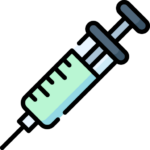
Sharps waste includes needles and blades, requiring sharps containers to prevent injury.

Gypsum-based waste is created from dental moulds that must be disposed of responsibly.
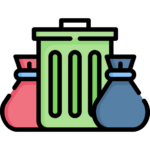
General waste covers non-hazardous, everyday waste such as office materials.

Dental plaster waste refers to leftover plaster from moulds, requiring safe disposal.
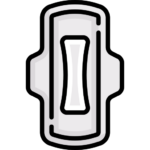
Sanitary waste includes hygiene products, hand towels, and feminine hygiene items from washrooms. Proper sanitary waste disposal is essential for maintaining a clean and safe environment for staff and patients.

Commercial dry mixed recycling covers not contaminated recyclables like paper, cardboard, and plastic bottles. Managing your dry mixed recycling properly helps reduce waste going to landfill.

Chemical waste includes developer solutions, disinfectants, and composites.
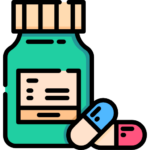
Pharmaceutical waste includes expired or unused medications and anaesthetics requiring special disposal.
Reduce waste, boost sustainability, and stay compliant with these straightforward business waste minimisation strategies.

Installing amalgam separators captures and recycles mercury-containing dental amalgam, keeping it out of wastewater, a legal requirement for all dental practices.
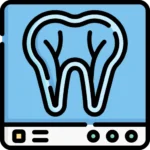
Switching from traditional X-ray film to digital imaging reduces the need for film and chemicals, reducing chemical waste and silver contamination.
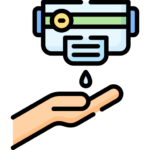
Purchasing items like fluoride gels in bulk reduces packaging waste, and using dispensers for soap and disinfectants avoids single-use packages.
Proper dental waste management is crucial for maintaining a safe, compliant, and hygienic environment in dental practices. Dental clinics generate various types of waste, including hazardous materials that pose risks to health and the environment if improperly handled.
Key reasons why proper dental waste management matters:

Dental waste can include sharp instruments, blood-soaked materials, and potentially infectious items. Incorrect disposal increases the risk of injuries, cross-contamination, and the spread of infections to staff, patients, and waste handlers.

Some dental waste, such as amalgam fillings containing mercury, can cause environmental harm if disposed of improperly. Ensuring these materials are collected and processed correctly helps reduce pollution and safeguards ecosystems.

Dental practices must adhere to strict commercial waste regulations. Failure to follow these guidelines can result in fines, legal action, and reputational damage. Proper waste collection services ensure clinics meet all necessary legal requirements.
We provide reliable dental waste collection services nationwide, helping dental practices safely dispose of items like sharps, amalgam, and clinical waste. Whether you’re an NHS practice or a private clinic, we can arrange tailored services to keep your practice clean and compliant.

Our trusted providers deliver expert dental waste services across London. From used gloves and masks to sharps and dental moulds, our London commercial waste collection services help busy practices manage waste efficiently.

Our Manchester commercial waste collection services support practices across the city. We collect and dispose of sharps, contaminated PPE, amalgam waste and more, making it easy to stay on top of hygiene and compliance.

We provide expert dental waste collection for clinics and surgeries throughout Birmingham. Our Birmingham commercial waste collection services include regular dental waste pick-ups to help your team manage everyday waste safely and responsibly.

Our trusted providers offer tailored dental waste collection services for surgeries across Leeds and the wider Yorkshire region. Our Leeds commercial waste collection services support dental practices with flexible, reliable collections that suit your schedule.

We offer reliable dental waste services across Bristol. From sharps bins to clinical waste bags, our Bristol commercial waste collection services keep dental practices safe, hygienic and compliant.

We provide professional dental waste collection across Liverpool. Our Liverpool commercial waste collection services make it simple for dental practices to manage clinical waste, protect staff and patients, and stay compliant with local regulations.